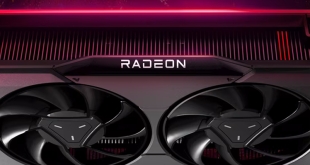This week, Nvidia announced the launch of its next-generation Blackwell GPU architecture, designed for data centres and AI acceleration. The first Blackwell GPU, the B100, is going to be made available this year, with the likes of Microsoft, Amazon and Google already lining up to secure the GPU for their datacentres. There isn't much for gamers to get excited about here, but Blackwell is also rumoured to be the architecture behind next-gen GeForce graphics cards. It is expected that the GB202 GPU will be used for the RTX 5090, and it should be based on the TSMC 4N node, much like its predecessor, but with some new improvements in place.
According to Kopite7kimi, Nvidia will use the TSMC 4NP node for new-gen GeForce graphics cards. For clarification, TSMC 4N is an Nvidia-specific 5nm node, but with some tweaks, the transistor density may have been improved by as much as 30 percent.
GB202 will use the same process node as GB100. I must clarify once again that TSMC 4N(vidia) is based on TSMC 5, not 4nm.
I'm sorry I cannot match Jensen's naming with TSMC's naming. We need professional chip analysis to determine.
At least, there is a 30% increase in density.— kopite7kimi (@kopite7kimi) March 19, 2024
The same leaker also hinted at a change in the L1 cache for the Blackwell GB202 gaming GPU, which should significantly improve over AD102 and GA102 (both had a 128KB size). This change is expected to increase the throughput of every single Streaming Multiprocessor.
The GB202 GPU is likely to be the flagship chip in the RTX 50 series. Rumours suggest it may have 192 Streaming Multiprocessors (SMs) and a 512-bit memory bus. Further speculations say that GB203 specifications might be half of what GB202 offers, implying it will have 96 SMs and half the memory bus width compared to the GB202 model.
KitGuru says: We're still quite a ways off from seeing new-generation GeForce graphics cards, especially given that RTX 40 Super only just launched in February. With that in mind, all information at this stage should be taken with a pinch of salt.
 KitGuru KitGuru.net – Tech News | Hardware News | Hardware Reviews | IOS | Mobile | Gaming | Graphics Cards
KitGuru KitGuru.net – Tech News | Hardware News | Hardware Reviews | IOS | Mobile | Gaming | Graphics Cards


